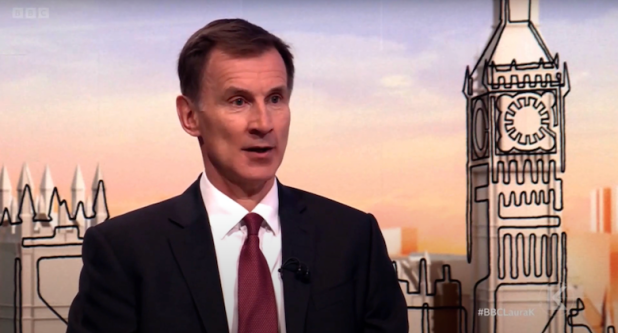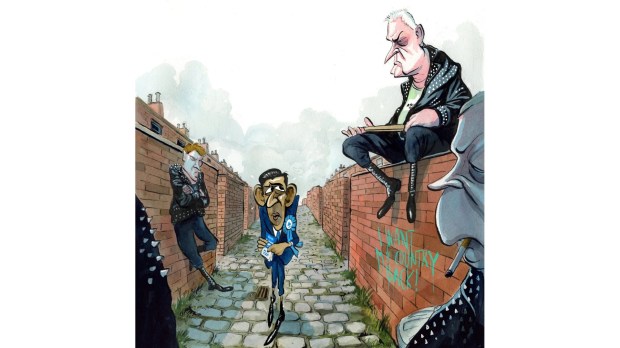Free speech concerns about the SNP’s Hate Crime Bill have been mounting for months now, so it was inevitable that the Scottish Parliament would eventually take notice. The Scottish Conservatives plan to force a vote there tomorrow calling on the Nationalist administration to withdraw the legislation. The Tory motion is unlikely to pass given the numbers at Holyrood. The SNP parliamentary group operates essentially as a single bloc vote while the sole function of the Scottish Greens is getting Nicola Sturgeon’s government out of the latest trouble it’s gotten itself into.
What the resolution will do is compel MSPs to take a side. Holyrood is not known for its great philosophical exchanges — more than a few would be surprised to learn that Plato isn’t a cartoon dog — but a parliament that can’t pass a liberty without trying to club it to death should be made to account for the latest thumping it has planned for individual freedom.
The Hate Crime Bill, brainchild of Nicola Sturgeon’s justice minister Humza Yousaf, creates a new offence of ‘stirring up hatred’ on the basis of age, disability, ‘race, colour, nationality (including citizenship), or ethnic or national origins’, sexual orientation, ‘religion or, in the case of a social or cultural group, perceived religious affiliation’, variations in sex characteristics and ‘transgender identity’. In contrast to the law in England and Wales, it will be no defence that an accused did not intend to stir up hatred. All that will be required is that a court determine it ‘likely that hatred will be stirred up’.
Another offence of ‘possessing inflammatory material’ will operate on the same basis and there are provisions for prosecuting directors and performers of plays considered to stir up hatred. The Faculty of Advocates, Scotland’s answer to the Inns of Court, warns that stand-up comedy, live sketch shows, dance and even opera would be under threat of prosecution.
The Bill has brought together the unlikeliest of bedfellows, from the Scottish Police Federation and the former president of the Scottish Criminal Bar Association to the National Secular Society and the Catholic Church. I take back everything I’ve ever said about the SNP promoting only division in Scotland.
The Tory motion is welcome but defeating Yousaf’s censorship law will require a cross-party coalition of the Conservatives, Labour, Lib Dems and ultimately the Greens. Scottish Green leader Patrick Harvie is no friend of liberty but he can be persuaded, I believe, that this Bill is too draconian. If nothing else, he will not want his legacy in politics to be as the man who made it possible to prosecute atheists, secularists and LGBT campaigners for ‘stirring up hatred’ against Catholic bishops and their doctrines. Harvie is a long-time advocate of hate crime aggravators such as those contained in Part I of the Bill.
Aggravators are aggravating to some libertarians but most who believe in free expression and are concerned about bias-motivated offences should be able to support them. Rather than punish ideas or beliefs, aggravators enhance punishment where ideas or beliefs have already prompted or been associated with the commission of an offence. They are not without their problems but defeating the repressive parts of this Bill will require pragmatism.
Opponents of the Bill should place an amendment deleting everything after Part I of the legislation, thereby creating a law that could pass unanimously, address hate crime and express society’s revulsion at offending driven by prejudice. This would be a wiser approach than that being advocated by the Scottish Tories. Their press release on Wednesday’s motion urges the Scottish Government to ‘withdraw the Hate Crime Bill and start again on a law that tackles hate crime without attacking free speech’. It further quotes new party leader Douglas Ross as saying: ‘Everyone agrees on the need for legislation to tackle hate crime in Scotland’. This is the kind of approach that sounds good in a strategy meeting but which will have a nasty encounter with real-world politics.
Introducing another Bill would merely create another opportunity for the authoritarians to crowbar in alternative forms of speechcrime. The same offences would be back on the table, perhaps with more benign-sounding language and copious promises about protecting freedom of expression. The Hate Crime Bill would pass behind a reassuring smile rather than the impatient snarl with which the current draft was introduced. Ross, who has called the present Bill ‘a blatant attack on freedom of speech’, will be aware of the acute concern laws of these kind cause Tory voters and, with a Holyrood election looming, his MSP group cannot afford to alienate its core vote by backing any Bill that places curbs on free expression.
A Hate Crime Bill pared back to the aggravators of Part I will allow everyone to claim a victory while stopping in its tracks one of the most radical, authoritarian speech laws in western Europe.
Got something to add? Join the discussion and comment below.
Get 10 issues for just $10
Subscribe to The Spectator Australia today for the next 10 magazine issues, plus full online access, for just $10.



















Comments
Don't miss out
Join the conversation with other Spectator Australia readers. Subscribe to leave a comment.
SUBSCRIBEAlready a subscriber? Log in